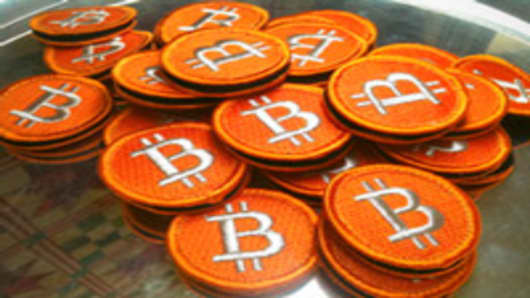Trading was suspended and the exchange’s administrators blamed the crash on a hacked user account. It said that many trades would be reversed. Let’s call it a “HackCrash.”
A copy of Mt. Gox’s user database—complete with usernames and passwords—began circulating online, indicating an extensive breach.
This was not one user who had his account compromised—it was thousands of the exchange's users, according to Wired.
BitCoin advocates describe them as a virtual currency or a “crypto currency.” They consist of long pieces of computer algorithms whose value fluctuates against traditional currencies like the dollar on electronic exchanges. Among the virtues of BitCoins, they are controlled by a peer-to-peer computer network rather than a central bank and allow for anonymous transactions.
But BitCoin valuations have been widely volatile—and not just because of Sunday’s HackCrash. BitCoins went around $1 each to almost $30 and back down to around $17 in a little over a month, according to the website Daily Tech.
This makes their utility as a currency highly questionable. Currencies are supposed to be stable units of account—and BitCoin values are so unstable that they would make economic planning impossible. Instead, they seem much more like a speculative investment.
What’s more, the very nature of the virtual or peer-to-peer status of BitCoins may make them subject to massive inflation. In fact, BitCoins seem far more vulnerable to inflation, manipulation and vulnerability than either government fiat currencies or traditional alternatives such as gold and silver.
Central banks are subject to political controls that limit their freedom to inflate or deflate the supply of currencies. Physical commodities like gold and silver serve as stable units of account because the massive amount already in circulation means any new quantities mined will not materially affect the total amount of gold or silver in circulation.
There are only 6.5 million BitCoins in circulation—which raises questions about whether they could be vulnerable to an attempt to create new BitCoins through manufacturing them. Advocates say it is very hard to create BitCoins using personal computers, although they acknowledge that it is possible to “mine” for BitCoins on powerful computers.
But inflation of supply is built into BitCoins. Computer users can open their computers to peer-to-peer mining, earning BitCoins the same way users earn points for downloads on services such as BitTorrent.
The computer security company Symantec explains:
One of the selling points of the Bitcoin currency is that anyone with a computer can begin to earn Bitcoin blocks by using his or her computer’s computational power, along with open source Bitcoin software, to solve a difficult cryptographic proof-of-work problem.
This is referred to as Bitcoin mining and, if successful in solving a block, it will lead to a reward of up to 50 Bitcoins per block. As of June 2011, there are just over 6.5 million Bitcoins in existence, with a finite number of 21 million possible to be reached over time. With Bitcoins presently trading at close to $20, Bitcoin mining sounds like an easy way to make some money.’
Symantec goes on to show that hacking into computer networks would allow cyber-criminals to manufacture new BitCoins at a profit.
Very few people are capable of understanding how BitCoins can be manufactured, much less evaluate reassurances that manufacturing is difficult. Improved computing power, for example, could make BitCoin manufacturing much faster and easier. Do advocates of BitCoins realize they are betting against improvements in the speed of computers?
The hacking of the largest BitCoin trading venue indicates the system is already extremely vulnerable. If new users come online, they are likely to be even less security-minded than the technorati who have been the early adopters. Which means that BitCoins and the exchanges must either become more secure or they are sure to face many more incidents like this weekend’s HackCrash.
_____________________________________________
Questions? Comments? Email us atNetNet@cnbc.com
Follow John on Twitter @ twitter.com/Carney
Follow NetNet on Twitter @ twitter.com/CNBCnetnet
Facebook us @ www.facebook.com/NetNetCNBC



